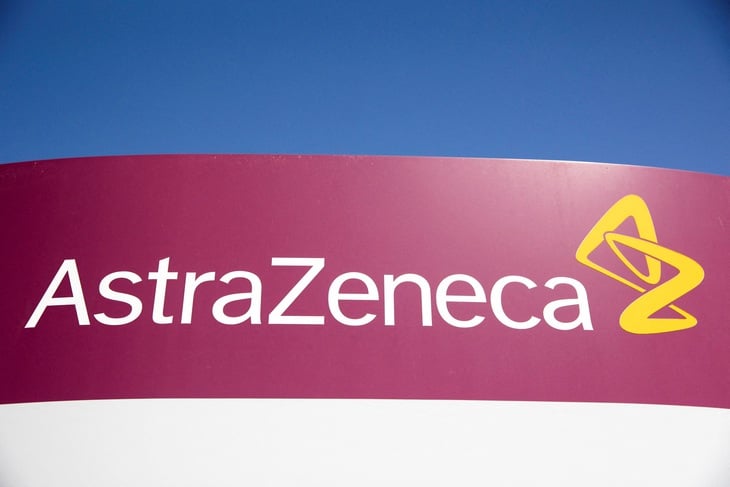Pharmaceutical company AstraZeneca - Photo: REUTERS
According to Reuters news agency, the new blood testing method combined with the new drug of the pharmaceutical company AstraZeneca is a promising step forward in cancer treatment.
The results of the study were presented at the annual meeting of the American Society of Clinical Oncology (ASCO), taking place in Chicago, Illinois. Accordingly, the drug in the final testing phase Camizestrant has shown the ability to reduce the risk of tumor growth or death in breast cancer patients by more than 50%.
Along with the drug trials, scientists are applying for the first time an innovative blood test, called a liquid biopsy or circulating tumor DNA (ctDNA) test, to detect early mutations in the ESR1 gene. This is an important sign that the patient is likely to be resistant to the drug, even though imaging has not detected tumor progression.
The study was conducted on 3,256 patients with HR-positive/HER2-negative (HR+/HER2-) breast cancer. Of these, 315 were found to have an ESR1 mutation through blood testing and were switched to treatment with Camizestrant in combination with a CDK4/6 inhibitor.
Results showed that this group of patients had an average progression-free period of 16 months, compared with only 9.2 months in the group that continued treatment according to the standard regimen.
Camizestrant is not yet approved by the US Food and Drug Administration (FDA). However, experts say the data from this study could change the way breast cancer is treated in the future.
“When patients show progression on imaging, we are already one step behind,” said Eleonora Teplinsky, MD, a physician at Valley-Mount Sinai Comprehensive Cancer Center. “Switching treatment early allows us to stay ahead of the curve.”
Also at the ASCO conference, another study showed that adding AstraZeneca's immunotherapy drug Imfinzi (durvalumab) to pre- and post-operative chemotherapy in patients with early-stage esophageal cancer significantly reduced the risk of recurrence, while improving event-free survival by 29%.
Both studies have been published in the New England Journal of Medicine and are expected to change clinical practice in cancer treatment.
AstraZeneca CEO Pascal Soriot said the company is looking at adapting its current treatment lines to incorporate these potential innovations.
Dynasty
Source: https://tuoitre.vn/astrazeneca-cong-bo-dot-pha-trong-dieu-tri-ung-thu-vu-20250602153802273.htm



































































































Comment (0)